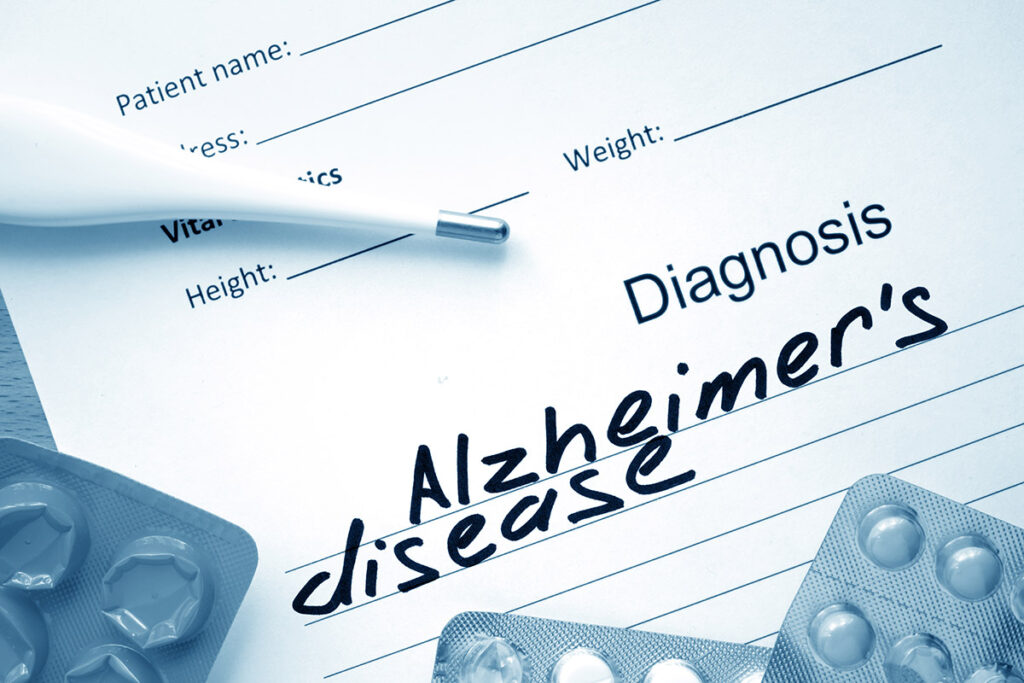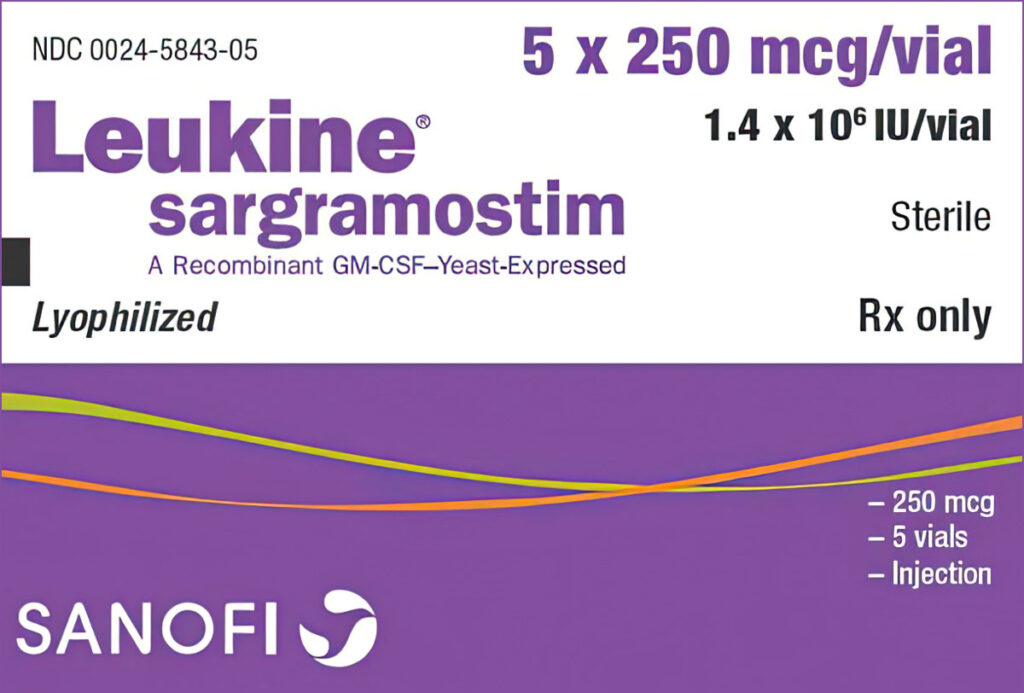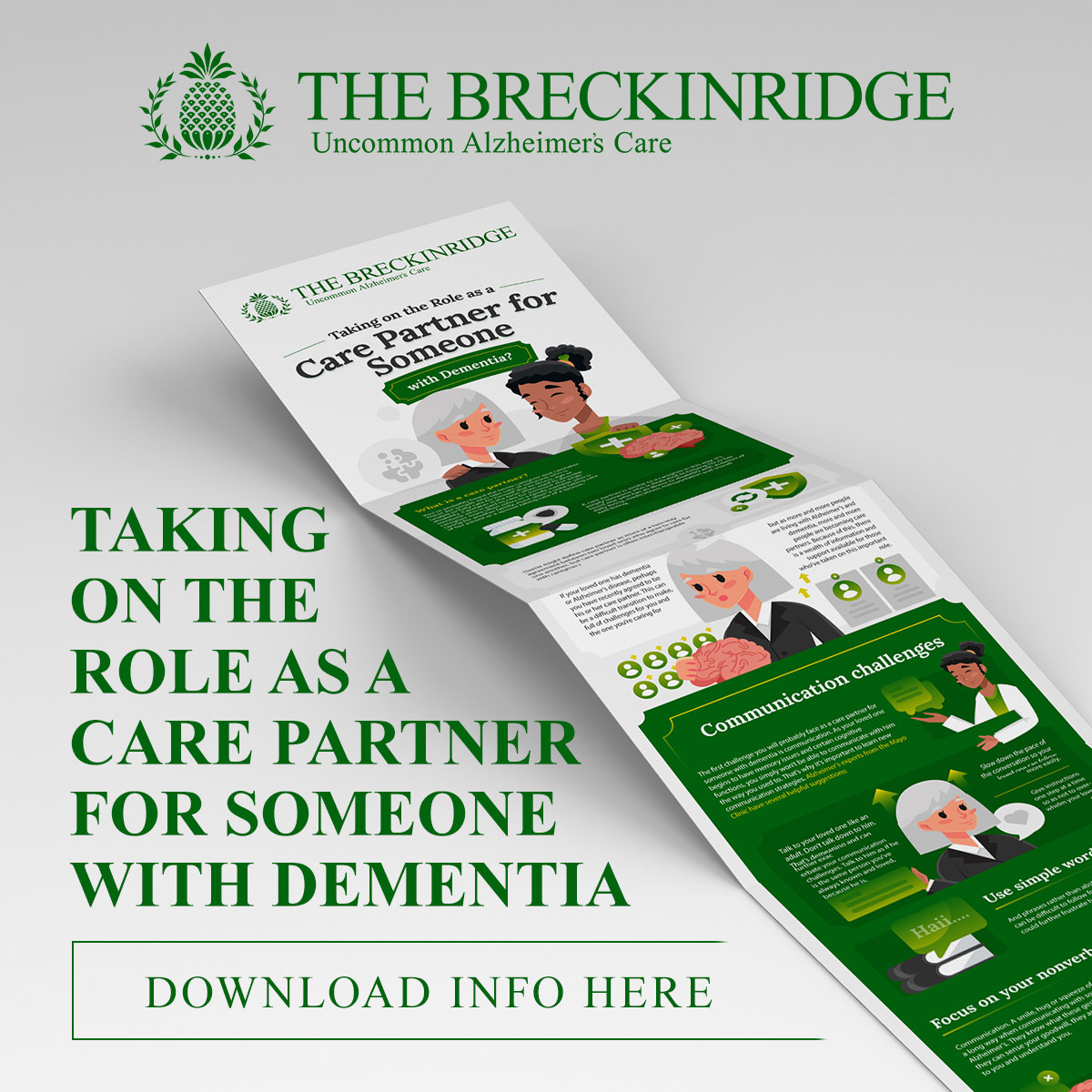What are the Treatment Options for Alzheimer’s Disease?

Treatment for Alzheimer’s disease?
While there is no cure for Alzheimer’s disease, there are a number of treatment options available for those who are living with Alzheimer’s. Medications, therapies and other interventions can help treat the underlying cause of Alzheimer’s as well as the physical and behavioral symptoms it causes.
FDA-approved Alzheimer’s medications
The only disease-modifying drug (a medication that treats the underlying cause of a disease) available for Alzheimer’s is Aduhelm, which received accelerated approval from the FDA in 2021.
Aduhelm is currently the only FDA-approved drug proven to help slow cognitive decline in those with early-stage Alzheimer’s or who are experiencing mild cognitive decline. It falls under the drug category of monoclonal antibodies, which mimic your body’s natural antibodies to invasive disease. Aduhelm works to remove amyloid plaque in the brain, which is a hallmark of Alzheimer’s disease. The drug is administered through an IV. Its high price tag and the fact it is not covered by Medicare or Medicaid have made it available to a limited number of people.
Lecanemab is not FDA-approved yet but is expected to be in 2023. It is also a monoclonal antibody drug and showed promise in a study where it reduced cognitive decline by 27% in participants who had early-stage Alzheimer’s disease.
Share this Infographic Image On Your Site
<p><strong>Please include attribution to https://thebreckinridge.com/ with this graphic.</strong><br><br><a href="https://thebreckinridge.com/ways-to-stay-engaged-socially-with-dementia/"><img src="https://thebreckinridge.com/wp-content/uploads/2022/11/2-taking-on-the-role-as-a-care-partner-for-someone-with-dementia-thebreckinridge.jpg" alt="Taking on the Role as a Care Partner for Someone with Dementia" width="1200px"></a></p>Medications for Alzheimer’s symptoms
Several medications address Alzheimer’s main symptoms: cognitive decline and memory loss. While these medications don’t cure these symptoms, they can help curb them, allowing those who are living with Alzheimer’s to have better memory for longer.
Galantamine, rivastigmine, and donepezil are cholinesterase inhibitors, which is a type of drug that helps prevent the breakdown of acetylcholine, a chemical in the brain that helps with thinking and memory.
Memantine is an N-methyl D-aspartate (NMDA) antagonist—a drug that regulates the amount of glutamate in the brain, which in excess can lead to brain cell death. Memantine can help someone with Alzheimer’s continue to perform functions for daily living like dressing or going to the bathroom, allowing them to maintain independence for as long as possible.

NMDAs can be taken with cholinesterase inhibitors and are often prescribed together.
Alzheimer’s medications in the trial phase
Several medications for the treatment of Alzheimer’s and Alzheimer’s symptoms are in the development, research, and trial stages, such as:
1. Tau aggregation inhibitors and tau vaccines
Researchers are working on medications that would prevent tau proteins from tangling and wreaking havoc on the brain using a tau vaccine or aggregation inhibitor.
2. Leukine

Also commonly known as Sargramostim, this drug is currently in the research phase. Leukine may help protect the brain from harmful proteins.
3. Saracatinib (AZD-0530)
This drug was originally developed for cancer patients, but recent studies in mice have shown its ability to restore memory. Researchers are now studying the drug in humans.
These are just a few of the drugs being tested for their effectiveness on Alzheimer’s disease. Because heart health has been strongly linked to brain health, research is also looking at medications that help with cholesterol, stroke, and high blood pressure to see if they could effectively help prevent Alzheimer’s disease.
Researchers are also looking at a possible link between estrogen and the brain, as one study showed that estrogen-based hormone therapy protected thinking and memory in women who were at higher risk of developing Alzheimer’s.
Medications for behavioral symptoms of Alzheimer’s
In addition to drugs that assist with the health of brain cells, doctors might also prescribe drugs for behavioral symptoms of Alzheimer’s disease. Drugs for insomnia, depression, and anxiety are often prescribed as these are common behavioral symptoms for those who are living with Alzheimer’s.
Antipsychotic drugs may also be prescribed for those who are showing persistent agitated behavior. It is recommended to try other interventions before medication for behavioral Alzheimer’s symptoms. However, many times medications will help and work together with other interventions.
Non-medication therapies and treatments for Alzheimer’s
A number of therapies and interventions are available for those at every stage of Alzheimer’s that can help with cognitive ability, emotional regulation and overall physical health.
Cognitive exercises such as arithmetic problems, memory games, and puzzles can be conducted by a specialist to help delay cognitive decline as much as possible.
Physical activity is beneficial for those who are living with Alzheimer’s. Movement is good for the body and brain, and exercise often allows for an opportunity to socialize, which is critical for those living with this disease.
Validation therapy is an emotions-oriented therapy that focuses on listening and validating the feelings of someone with Alzheimer’s disease. Since an Alzheimer’s diagnosis can be so difficult as well as the progression of the disease, being able to talk honestly and openly about your experience in a safe environment can be very healing.
Life story work is a collaborative intervention that can be done with a caregiver. The caregiver asks questions about the person’s life—where they were born, memories from childhood, etc.—to create a visual map of their life story, recording memories and moments in a scrapbook or through video. This type of work can help stimulate thinking and memory and can be calming for someone who is living with a memory that seems to be so far out of reach.
Treatment for Alzheimer’s disease
While a cure for Alzheimer’s is probably not in the near future, as scientists and researchers continue to better understand the disease and what it does to the brain, the better they are able to develop medications and treatments that improve the longevity and quality of life for the millions of Americans who are living with Alzheimer’s today.
If you’re interested in more information about treatments for Alzheimer’s, talk to your doctor or visit the resources below.
https://www.alz.org/alzheimers-dementia/treatments
https://www.mayoclinic.org/diseases-conditions/alzheimers-disease/diagnosis-treatment/drc-20350453






